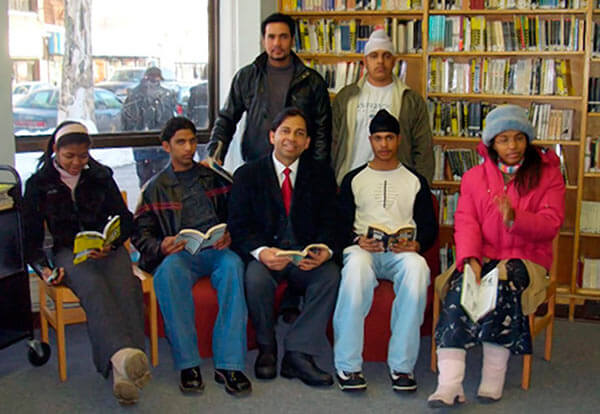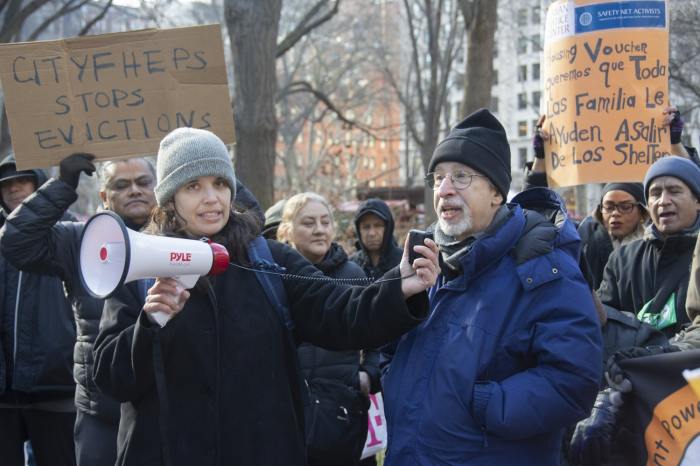The dreadful news that President Donald Trump has scrapped the Deferred Action for Childhood Arrivals (DACA) policy is very troubling. In addition to the legal actions to preserve and / or reinstate it, Congress must swiftly act to make it law. The people protected by DACA have been referred to as “DREAMers” and are people who were brought by their parents to America as children, before they were able to make an independent choice to immigrate. These folks are, as President Obama said when enacting DACA, American is every way–except for possessing papers.
Former President Obama condemned President Trump’s decision to end the Deferred Action for Childhood Arrivals (DACA) program, saying a “shadow has been cast over some of our best and brightest young people once again.” Obama decided to implement DACA through an executive order during his presidency because “it made no sense to expel talented, driven, patriotic young people from the only country they know solely because of the actions of their parents.”
“To target these young people is wrong – because they have done nothing wrong. It is self-defeating – because they want to start new businesses, staff our labs, serve in our military, and otherwise contribute to the country we love. And it is cruel,” he said. Deporting them back to countries they have no memory of and where they know nobody demonstrates the basic lack of human decency.
National pride and interest dictate that the Deferred Action for Childhood Arrivals, or DACA initiative, should have been made permanent years ago. This year marks the fourth anniversary, and although the track record supports that conclusion, these dreamers still languish for some permanence to their hopes and endeavors. All Dreamers are products of America, and most also have someone in their family who’s an American citizen-17 percent are married to a citizen, 26 percent have children who are citizens, and 59 percent have a sibling who’s American.
Surveys and studies confirm that the economic, educational, and employment experiences and outcomes of DACA recipients make clear that DACA has had a positive impact, not just for recipients but also for the American economy more generally.
Through executive action, DACA provided temporary relief from deportation and work authorization to eligible unauthorized immigrants who entered the country at a young age. 800,000 unauthorized young people have received DACA, improving the lives of its recipients and their families.
The data illustrate that DACA recipients are making significant contributions to the economy by buying cars and first homes, which translate into more revenue for states and localities in the form of sales and property taxes. Some are even using their entrepreneurial talents to help create new jobs and further spur economic growth by starting their own businesses.
The positive wage effect of DACA is also significant. The data show that DACA increased recipients’ average hourly wages by 42 percent. Given that higher wages translate into higher tax revenue and economic growth, these findings reinforce the fact that DACA benefits all Americans. Moreover, a full 95 percent of survey respondents are currently employed or enrolled in school. Consistent with the 2015 survey, the data indicate that many DACA recipients are getting better and higher-paying jobs because of DACA. Many are pursuing educational opportunities that were previously unavailable to them. The majors, specializations, and training that DACA recipients are pursuing include early childhood education, biochemistry, computer science, creative writing, graphic design, neuroscience, nursing, social work, and urban planning, among many others, which benefits our nation.
The latest data indicate that having work authorization remains vital when it comes to helping DACA recipients participate more fully in the labor force. Eighty-seven percent of respondents to the 2016 survey are currently employed, with an additional 8 percent not working but in school.
The current survey is one of the first to systematically identify the industries in which DACA recipients are working, and the results show wide-ranging labor market contributions. The data indicate that 21 percent of respondents work in educational and health services, 11 percent work in the nonprofit sector, 9 percent work in wholesale and retail trades, and 8 percent work in professional and business services. The results illustrate that DACA recipients are contributing across all sectors of the economy.
Furthermore, after receiving DACA, 63 percent of respondents reported moving to a job with better pay; 49 percent moved to a job that “better fits my education and training.” 48 percent moved to a job with better working conditions. These figures are largely consistent with previous findings from the 2015 survey and show that the temporary work authorization that comes with DACA has helped to unlock recipients’ economic potential.
The 2016 survey also found that 6 percent of respondents started their own business after receiving DACA. This rate of business starts is higher than that of both the American public as a whole—at 3.1 percent—and the entire immigrant population—at 3.6 percent. These businesses include tech startups, online craft stores, and tax preparation services, among others. One business owner who employs nine people hopes to continue to grow and “hire [even] more people from the community.”
Statistics don’t lie! Congress must act accordingly, and make President’s signature initiative law!
Note: Albert Baldeo is a civil rights activist and community advocate. As President of the Baldeo Foundation and Queens Justice Center, he has continued to fight for equal rights, dignity and inclusion in the decision making process. He can be contacted at the Baldeo Foundation: (718) 529-2300.






















